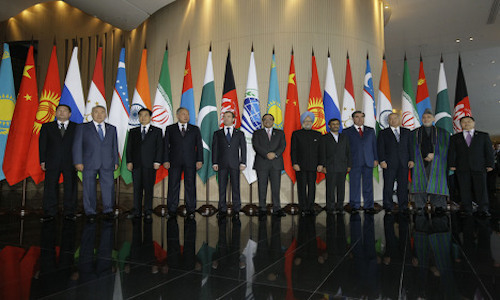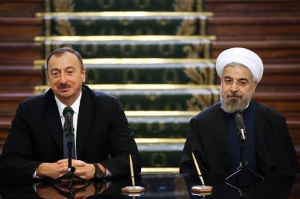Is Iran Making a Comeback in Central Asia?
By Stephen Blank (10/01/2014 issue of the CACI Analyst)
Iran is seeking to recapture lost ground in Central Asia and the Caucasus. Earlier signs that the nuclear issue might be moving towards a peaceful resolution has encouraged some of Iran’s neighbors to take preparatory steps to resume dialogue with Tehran. Iran has extensive ties with and influence in Afghanistan. Thus Iran’s vital interests are connected with the future of that country. As NATO winds down its presence there, the widespread concern about the future of Afghanistan may lead improved ties between Iran and Central Asian states who clearly want as many foreign governments as possible to exercise a moderating influence on Afghan developments.

Shanghai Cooperation Organization Set to Expand
By John C.K. Daly (08/14/2014 issue of the CACI Analyst)
The Shanghai Cooperation Organization (SCO) currently consists of China, Kazakhstan, Kyrgyzstan, Russia, Tajikistan and Uzbekistan. At an August 1 meeting in the Tajik capital Dushanbe, foreign ministers from the six member states reached consensus on legal documents providing for expanding the SCO to include four current SCO observer states, India, Pakistan, Iran and Mongolia, passing two draft documents on expansion for approval at the SCO summit to be held in Dushanbe September 11-12. If passed, it will be the largest expansion of the SCO since its founding.

Iran and Afghanistan: More of the Same
By Richard Weitz (07/02/2014 issue of the CACI Analyst)
Iran’s growing role in Iraq to counter the Sunni militants there has attracted increasing attention in recent weeks, but Tehran looks likely to assume a more prominent role in Afghanistan as well. Iranians see challenges as well as opportunities in both countries, where actors hostile to Iranian interests are active. The civil strife in Iraq and Afghanistan easily spills over into Iran, and their governments turn primarily to Washington for military support despite their growing ties with Tehran. In Afghanistan, Iran has pursued a complex multi-layer strategy designed to pursue its diverse and competing objectives.

Is an Irano-Azerbaijani Rapprochement Taking Place?
By Stephen Blank (05/21/2014 issue of the CACI Analyst)
Iran is substantially modifying its policies in the Caucasus and is seeking to draw Azerbaijan closer. The high point of this rapprochement was the visit of Azerbaijan’s President Ilham Aliyev to Iran in April, a visit arranged after he and Iranian President Hassan Rouhani met in Davos in January. The visit received glowing reporting in both countries and led to the signing of several memoranda on minor issues. However, the key is that Iranian Supreme Leader Seyid Ali Khamenei expressed assurances of greater bilateral cooperation as a result of the visit as well as Iran’s support for Azerbaijan’s territorial integrity, including apparently Nagorno-Karabakh.







